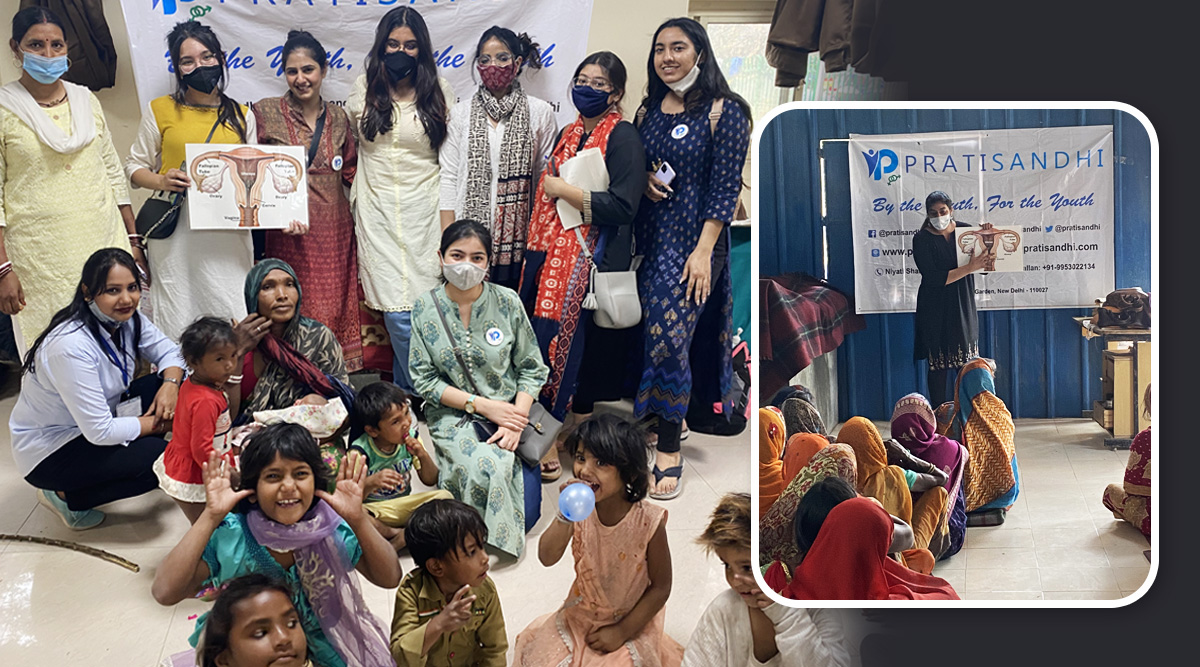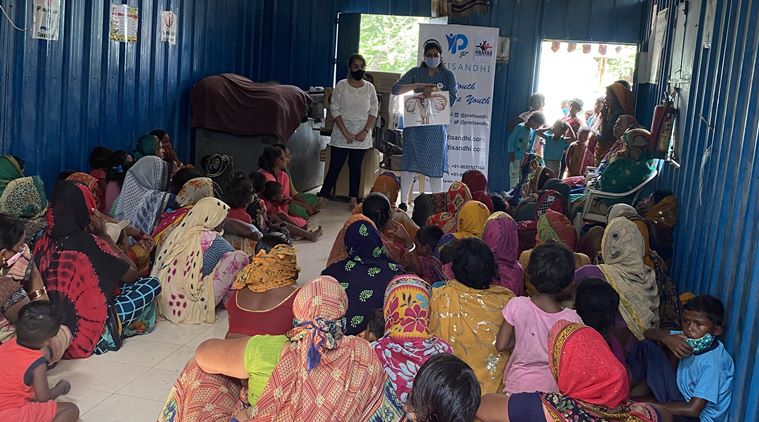While Pratisandhi's responses to the queries are backed by research and science, the platform simply takes on an educational role and in no way is a substitute for professional medical advice.

“Can balloons be used as substitutes for condoms?”
“Will I go blind if I masturbate a lot?”
The Internet may have become the go-to tool when it comes to asking uncomfortable, and even bizarre, questions about sexual and reproductive health for young adults, but it may not have the right answers. To fill this gap and understand the hesitation felt while approaching parents and adults, 20-year-old Niyati Sharma came up with ‘Pratisandhi’, a youth-driven non-profit organisation that aimed to disseminate information about sexuality. She was honoured with Diana Award this year, conferred on young humanitarians who work to improve the lives of others.
Growing up, Sharma, a psychology and international relations student at the University of British Columbia, had a lot more access to information about sexual health as compared to her peers. “I have had an interest in healthcare primarily through my mother who is a gynaecologist. With time, I began to learn of the implications that inadequate information about sexual and reproductive health can have on a person’s wellbeing,” she told indianexpress.com

Sharma soon found herself brainstorming ways to create a safe environment for youngsters where they could ask questions without feeling embarrassed. “Our educational institutions often fail at creating spaces where the stigma around these subjects can be shaken off to empower students to make informed decisions, and that is the very goal behind Pratisandhi.”
Being a 17-year-old at the time, Sharma recognised the transition from adolescence to adulthood and how crucial sex education is during that phase. She then started a social media account with the purpose of educating youngsters. “Pratisandhi has a two-fold meaning. On one hand, it signifies the period of transition between the two ages. On another, the word means resistance, signifying our resolve to resist the stigma around sex and sexuality in our society,” she explains.
https://www.instagram.com/p/CSJzXj3qVuT/
A post shared by Get Cliterate by Manzuri (@get_cliterate)
What started as a social media page rapidly grew into an informative platform where youngsters were able to find answers to even some of the most bizarre questions about sexuality. “We routinely get questions about pregnancy scares, about fears around masturbation or porn addiction, size issues and social pressure tied to these aspects of sexual performance,” Sharma said.
Adding that most of these questions stem from fear, anxiety, or lack of information about the subject, her team maintains a judgment-free zone. “We try not to label questions as ‘weird’ or ‘common sense’ because that defeats the whole purpose of creating a space free from stigma.”
https://www.instagram.com/p/CSHTbaCpO9A/
A post shared by Pratisandhi | Sex Ed India (@pratisandhi)
While Pratisandhi’s responses to the queries are backed by research and science, the platform, Sharma explains, simply takes on an educational role and in no way is a substitute for professional medical advice. “Pratisandhi views social media as an enhancer of sexuality education but not as one that can replace the need for programs whose impact can be measured with support from schools, parents, governmental authorities, and long-term engagement with students.”
Over a span of three years, the organisation has grown from an online platform to a registered non-profit organisation where Sharma along with her team is conducting educational interventions ranging from standalone workshops on topics like consent, sexual abuse, and contraception to long-term programs specially curated to give students a holistic view of comprehensive sexuality education and its components.
https://www.instagram.com/p/CRZKjWfNBXA/
A post shared by Pratisandhi | Sex Ed India (@pratisandhi)
“Our team has also steadily grown from one of less than 5 members to a strong pan-India network of over 80 volunteers, who undergo training in sex education to better equip themselves,” Sharma said.
Sharma, who has conducted over 100 workshops to date, plans to hold more offline programs and expand the more inclusive and comprehensive curriculums. “We hope to join hands with more schools and other educational institutions to take our programs to cities across India and will work towards greater empowerment that leads to systemic change.”
Source: Read Full Article
